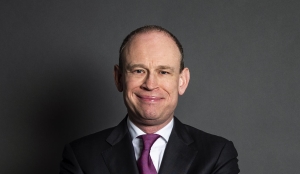Background on EU Trade Commissioner-designate, Valdis Dombrovskis
This update is to provide you with some background information on the new European Trade Commissioner-designate, Valdis Dombrovskis, following his nomination this week. Mr Dombrovskis (49), a former Prime Minister of Latvia, is due to replace Phil Hogan from Ireland, who was obliged to resign over a national controversy when it emerged that he had infringed COVID-19 restrictions.
As expected, Ireland did not manage to retain the highly sought-after trade portfolio and the new Irish Commissioner, Mairead McGuinness, has been nominated to oversee financial services.
A highly experienced figure at EU level, Mr Dombrovskis has previously served two terms in the European Commission, where since 2019 he has been Executive Vice President with responsibility for economic affairs. In this role, Mr Dombrovskis has been coordinating work on the Commission’s economic crisis response to the Coronavirus pandemic, including the EU’s recovery strategy and also had a role in overseeing trade and economic relations with international partners. In fact, within the Commission hierarchy, former Commissioner Hogan would have been reporting to him. Mr Dombrovskis is also a member of the same centre-right European People's Party, the same political grouping as former Commissioner Hogan, so his nomination keeps the important trade portfolio in EPP hands.
During the previous Commission mandate (2014-19), Mr Dombrovskis had also served a Commission Vice President for the Euro and Social Dialogue. From July 2016, he was also in charge of the financial services portfolio formerly overseen by British Commissioner Jonathan Hill, who resigned after the Brexit vote. So, his nomination as Trade Commissioner is not the first time that he has been asked to step in after a political debacle. His subsequent involvement in global financial policy and banking standards also provided a taste of international trade negotiations. Indeed, he was regarded as taking a tough line with the UK/City of London, behind the scenes, during EU negotiations on the Brexit Withdrawal Agreement.
Mr Dombrovskis served as Prime Minister of Latvia from 2009 until 2014, making him the longest-serving Prime Minister since the country's independence (he led three governments). His government's austerity budgets helped pave the way for Latvia to join the euro in 2014. He stepped down after the collapse of a shopping centre in Latvia killed dozens of people, saying he was taking responsibility on behalf of his government over alleged failures to regulate effectively the construction industry. Mr Dombrovskis also served as Minister of Finance from 2002 to 2004, and was a Member of the European Parliament for the New Era Party.
During his career in Brussels, Mr Dombrovskis had led the Commission's digital tax policy which has created tensions with Washington due to the impact on the overseas operations of U.S. multinational tech companies and other large corporations. The Commissioner-designate is therefore already well briefed on tax policy, which will continue to be a central point of contention in transatlantic relations.
Mr Dombrovskis has a stronger background in economics than trade, having held previous positions with a focus on economics as well as working for a time at the central bank before pursuing a political career. During his term as a Member of the European Parliament, he obtained a master's degree in customs and tax administration from Riga Technical University.
A technocrat who is comfortable with going into technical detail, Mr Dombrovskis would be generally viewed as a safe pair of hands. He is fluent in English and also speaks Russian and French.
Since he oversaw the work of former Commissioner Hogan and is from the same political group (EPP), it appears unlikely that this appointment will signal any significant change in EU trade policy. Moreover, since he comes from a small country, the nomination of Mr Dombrovskis does not disturb the delicate political balance within the Commission.
Next Steps:
Mr Dombrovskis will face a round of questioning from Members of the European Parliament during a Hearing to be scheduled in the next weeks, followed by a vote on his nomination. Given his background and experience, his nomination is expected to be approved by MEPs.




